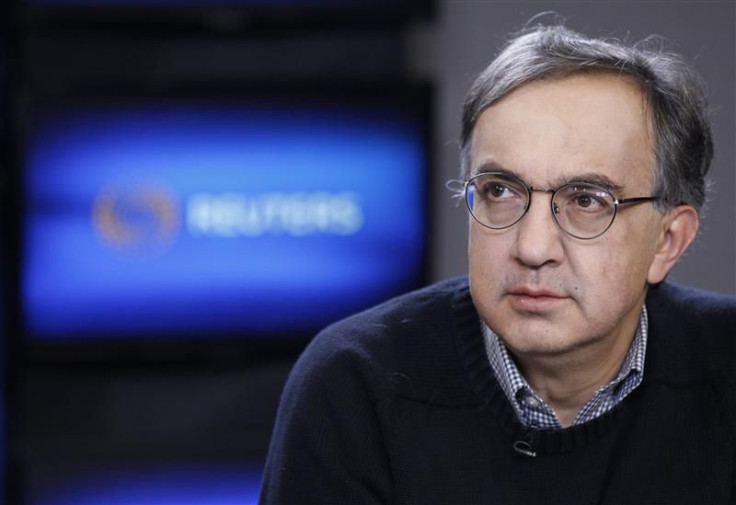GM, Ford, Chrysler Report Strong December Sales: Momentum Built for 2012

The U.S. auto industry put a cap on its best year since crumbling to unforeseen depths in 2008, as the Big Three all reported strong December sales that met or exceeded analyst estimates.
Across the board, results gave reason for more optimism heading into 2012 after a year of profound recovery. Consider the following: In 2011, automakers pledged to hire or rehire 25,000 or more employees within the next four years. And through a domestic rebound and Toyota's struggles, General Motors is again the top global vehicle seller.
And as consumer confidence and pent-up demand grew, so did auto sales, as consumers were willing to get back on board with what analysts said were better products from U.S. automakers.
You have to give a lot of credit to automakers here, Jesse Toprak, the chief automotive industry analyst for TrueCar.com, told the International Business Times in a phone interview. They're producing great products that consumers are willing to buy. At the end of the day, it's the car that sells. It's the product that sells. The collection of cars offered in U.S. dealerships today is the best we've seen so far.
The sales came in droves in December, something analysts expected. Fiat-owned Chrysler's sales were up 37 percent. Ford was up 17 percent. GM was up a modest, but steady, 5 percent.
Those numbers hold through for the full year 2011, as auto sales jumped to 12.8 million after reaching lows of about 10 million two years ago, according to Edmunds.com. In came similar big numbers: Chrysler leaped 26 percent. Ford grew 11 percent. GM jumped 14 percent.
In an industry of good news, Chrysler grabbed the most attention.
They've got a lot going for them, Ivan Drury, an analyst at Edmunds.com, told the IBTimes of Chrysler. They've launched products that dealers are able sell very quickly.
Even auto companies outside of the U.S. benefited from better consumer sentiment and the pent-up demand. Volkswagen on Wednesday reported December sales of more than 32,500 vehicles, a 36.2 percent increase from last year and the company's best December in nearly 40 years. The Passat, a finalist for the North American Car of the Year built in VW's Chattanooga, Tenn., plant opened this year, increased sales by an eye-popping 124 percent.
Audi, meanwhile, also announced staggering -- and record -- sales jumps for both December and the full year. Sales rose 20 percent in December and 15.7 percent on a year-end comparison from 2010. And Nissan sales grew 7.7 percent, beating analyst estimates by more than 2 percentage points.
We expected it to be a good month, Drury said. December, pre-recession, was actually not a great month. Most people got deals in the summertime. But in recent years, December has been quite strong.
The reasons for that: automakers have begun offering better deals around the holiday season, stealing a page from retailers' books. And particularly this December, the strong December goes hand in hand with consumer confidence and the release of repressed demand.
Aaron Bragman, an analyst at IHS Automotive, told the IBTimes last week that consumers are starting to be able to take on the debt to buy new cars. Drury also said that Edmunds.com data pegged 2011 as the year in which the average age of traded-in cars was older than any other year since the company started measuring in 2004.
And Bragman said the uptick reflects the general attitude of improvement in the U.S. economy -- though ever so slightly.
We're all in a little bit better frame of mind, Bragman said of the economy. It's, 'How fast can it recover,' rather than, 'How much worse can it get?'
That led to the sales that had automakers gushing at the results. Chrysler President and CEO Reid Bigland said the company finished a year of growth on a strong note. Similarly, Ford Vice President of U.S. Marketing and Sales Ken Czubay said the automaker finished on a high note. And GM Vice President Don Johnson said the results give the company a very solid foundation to compete in a market that we expect to keep growing.
Analysts expect the market to keep growing in 2012, too. Edmunds.com projects a slow but steady increase to about 13.8 million cars sold. And Drury said that's a good thing.
More growth, steady, nothing out of control, Drury said. We're not going to get back to what was normal in the mid-2000s, which is good. There's no overproduction and no really high levels of incentives that make it expensive to sell cars. It's a healthy rate, instead of out of control.
© Copyright IBTimes 2024. All rights reserved.











